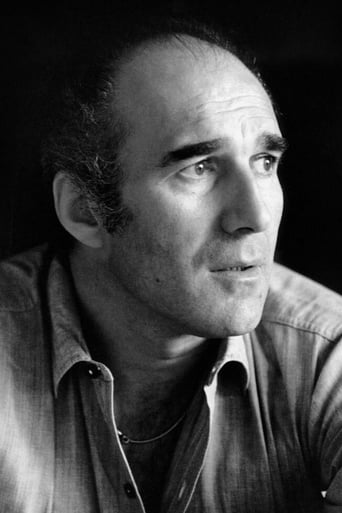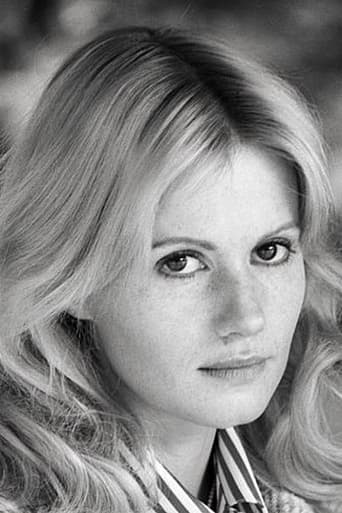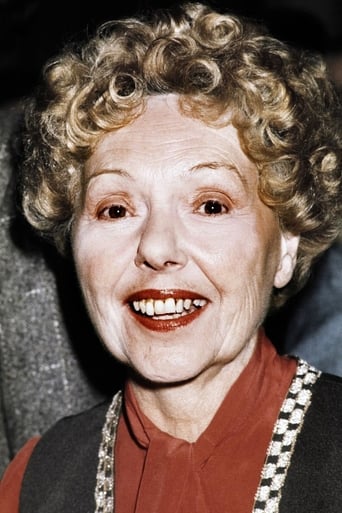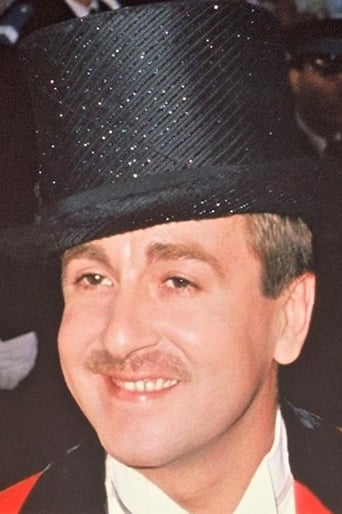Acensbart
Excellent but underrated film
Catangro
After playing with our expectations, this turns out to be a very different sort of film.
Casey Duggan
It’s sentimental, ridiculously long and only occasionally funny
Staci Frederick
Blistering performances.
Karl Self
This is a movie about the romantic awakening of an open-minded, freckle-faced ingénue named ... hold on, Milou turns out to be a gentle and wizened giant of a man, played by Michel Piccoli, who has apparently learned to live with an inappropriately cute nickname. He is living on his mother's country estate, and generally enjoying the decelerated life of landed gentry. Then his mother dies and his siblings descend on the mansion, threatening his casual existence (or maybe just questioning Milou's privilege of doing FA for a living). At the same time, the riots of 1968 are unfolding in far-away Paris.The small group represent the different attitudes of French society at the time, we have the idealistic student who is overly anxious to see the arrival of a new world order, alongside the bourgeois reactionary who is somewhat less enthusiastic about horde of bearded baba cools putting up barricades, a housemaid who just wants to get her share of the inheritance, as well as a woman who feels impelled to take her top off for some reason. At one point, the group flee into the woods, and return the next morning. Somehow, the biggest bourgeois of all, Milou, is untouched by the quarrels around him and ends up continuing to live his placid mansion life, seemingly because he is so quaint and affable.This movie had a few good ideas and moments, but it kind of runs out of ideas and plot after the family is assembled and their individual positions are established. In the end it's more or less a showcase for Michel Piccoli.
Michael Neumann
It's easy to understand why the late Louis Malle was such a respected filmmaker after seeing this comedy of manners, inspired (again) by the director's own childhood memories. The film begins when a grandmother's death in the spring of 1968 reunites three generations of family at a country estate in southern France. But their mingled grief and affection is soon overshadowed by news of the student riots in faraway Paris, and their already fragile bourgeois equilibrium is unbalanced by the distant echoes of uninhibited anarchy. The parallels between the family crisis and the world at large are obvious, but rarely has a corpse lying in state been surrounded by so much activity: private longings, public declarations, old resentments and new romances are all given sudden priority over preparations for the old woman's burial. Consistently graceful, often surprising, the film is an affectionate valentine from Malle to the extended family of his youth, and a gift to discriminating movie audiences during a long, dry summer.
Tim Kidner
I've long felt that Louis Malle was my favourite French director. Pushing out the cinematic envelope with his honest perceptions about real people, but with a sort of steady verve. They can be challenging, always absorbing but none like Milou in May -which is one of wonderfully loose 'no lectures today' sort of light comedies about the country-set all getting hot and bothered about sorting out funeral arrangements. The fact is that there's a national strike which causes difficulties for the various interested parties in getting there and that Paris is literally burning with the '68 student riots. But those same facts are wonderfully incidental, revealing maybe how different the upper middle class country retreats are away from poor, clashing students in the big City. Physically, socially and economically.A playful Stefan Grapelli score delights, with a lush, so lush (it IS May) cinematography which added the cream on top of the cake, with added witty dialogue, and almost fantastical characters. They might be a little caricatured, but with an oh! so, charismatic lead. We all dreamed of uncles like that when we were ten years old! As they hang about waiting for the rest to turn up, the lazy, hazy May afternoon strolls on, with a wisp of sex and drug taking, it's an intoxicating blend of slight naughtiness to spice up a usually (for most people) unpleasant but necessary gathering.This is Kodachrome Malle, rather than his monochrome.
Luis Guillermo Cardona
Louis Malle was one of the most notable members of the Nouvelle Vague (New Wave) french movement that was an alternative to film reconstructions historical and literary adaptations commonly "infidels" as they used to do filmmakers Delannoy, Autant-Lara and some others, because, unlike these, the New Wave advocated an approach to the problem of the individual to privacy, their personal experiences. But like the rest of their comrades (with the exception of Truffaut), Louis Malle also realized that this new path, it could anchor a bourgeois and individualistic conception of life and needed to be linked to analysis of social problems, seeking more openness and greater narrative ideological commitment. So did "Lacombe Lucien", an energetic recreation of the effects left by fascism. And, among others, "Alamo Bay", on the reaction of the Vietnamese Americans living there, after the failure of the war.Until that arrives "MILOU EN MAI", a metaphor for the state and the system, full of irony and black humor of the finest. Milou's mother, Mrs. Vieuzac, is representing the state: the owner of everything. Their children, grandchildren and sons-in-law, are the bourgeoisie, owners of power in the state. Claire, the maid, is the proletariat, the heir to only a quarter of the estate of Mrs. Vieuzac. The main prototypes come to life: the landowner, the reactionary intellectual, trader, bourgeois ladies... With a delicious dialogue through participation in the old script by Luis Bunuel collaborator Jean Claude Carriere ("Now women complicated everything. Before they knew it was not an orgasm and it was easier"), a delightful musical score with the great jazz style of Stephane Grappelli, and beaten with that herd, Louis Malle reconstructs the warm and vibrant time of May 68', in which there was a social class who knew everything, understood everything and was consistent with everything... until that any solace to meddle in its liabilities.In a wonderful characterization, Michel Piccoli represents Milou, the provincial intellectual who suddenly is surrounded by its unique family at the announcement of the death of his mother. When that nice breed, feel that the facts are about to touch them directly, they decide to leave the field (are excluded). What follows is better that you see it, you'll find people have probably already seen in your neighborhood or on your street and you'll realize, perhaps, that many things are not as they seem. "MILOU EN MAI", is a piece of film hard to forget.





